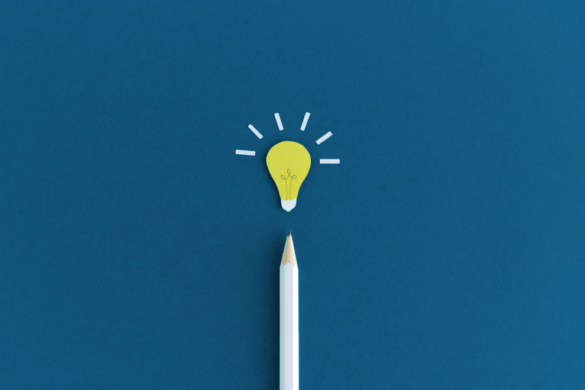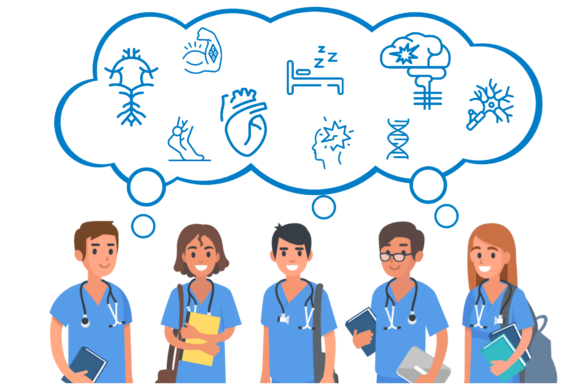by Stella Goeschl
Students have an inherent curiosity that often goes far beyond their university curricula. When we develop a particular interest, we desire expert knowledge. And for that reason, we go out seeking it.
I had the chance to attend the 8th Annual Congress of the European Academy of Neurology in Vienna, Austria this year as an EAN Student Member. After two years of being held online, this year’s hybrid setting made it possible for participants to join both in person and from the comfort of their own homes. This includes medical students, who were encouraged to join the conference, and were represented among in-person as well as online participants.
Experiencing a medical congress as an undergraduate student often carries a sense of novelty, and rings in the prospect of a future academic career. There is excitement for the topic, interest in the newest developments, and anticipation for what is to come next. I find that there are advantages in attending a medical conference at this stage of our career – we are not yet tied to a specific subdiscipline or research topic, and can spend our days browsing through the programme, picking and choosing as we go. There is a plethora of knowledge available to us, just waiting to be explored, and as students, we have free rein to go and see it all.
I attended the congress from Saturday 25 June to Tuesday 28 June, as my schedule would allow it. Across these four days, I attended symposia, oral presentations, and poster sessions, and took a stroll through the exhibition hall during coffee breaks. I listened to research presentations I was drawn to and attended talks on subspecialties of particular interest to me. The thought-provoking academic discourse in sessions was a lovely reminder of why conferences are held in person. For the ‘Why Neurology?’ student essay contest, students and professionals alike gathered in the scientific theatre for the presentation of the winners’ work. Seeing fellow students present their essays here as well as their own research as oral presentations or posters was all the more inspiring and is a testament to their contribution to the congress and EAN as an organisation.
I was also able to attend one of the dedicated student sessions, titled ‘Why Neurology? From a student to a professor‘. Each of the two sessions, taking place on the Sunday and Monday of the conference respectively, invited students to join and have a conversation with two renowned clinicians and researchers in the field of neurology. In the session I attended, Profs. Claudio Bassetti and Barbara Tettenborn offered insights into their clinical practice and careers and provided advice and input on questions posed by students. The session offered a great opportunity for networking not only with professionals, but also with fellow students who, previously, we had only recognised in passing by the addition of a green tag to the bottom of our conference badges, identifying us as a Student Member. We were medical students as well as students of other scientific disciplines, and we shared a common interest in neuroscience. We were each other’s future colleagues.
Having known early on that neurology is the subject I want to pursue I have jumped at the mention of neurologic terms for years. But from what I observed, the congress offered something for students in every step of their decision process or career path. Maybe you are browsing the specialty, or maybe you are browsing the subspecialties. Maybe you are trying to figure out if research or clinical practice is what you would like to pursue.
Why neurology? This question is the recurring theme of EAN’s student activities, and it was my experience that by the end of the congress, the answer becomes crystal clear. Attending the EAN Congress in Vienna this June was a great experience for me, and I can only encourage other interested students to join and do so in the future.








